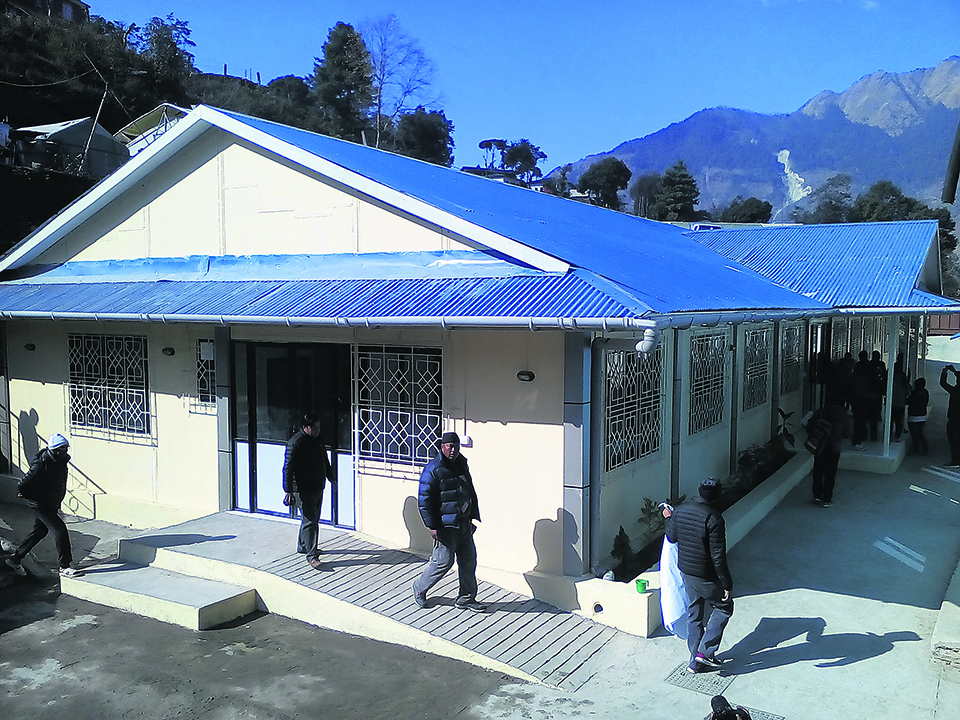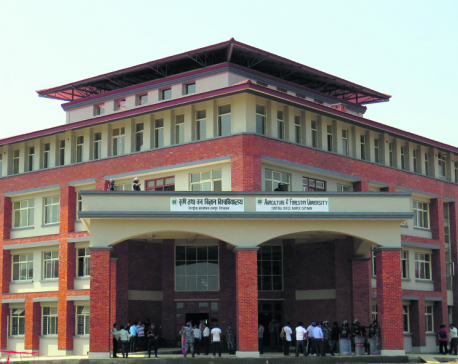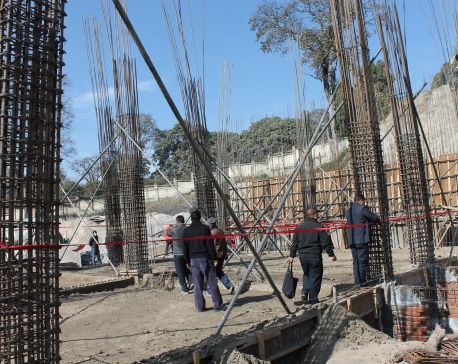
OR
32 months after quake, hospital finally gets its building
Published On: January 3, 2018 05:00 AM NPT By: Him Nath Devkota

RASUWA, Jan 3: Rasuwa’ district hospital has moved into its new building. The hospital had been providing services from tent after its building was destroyed by earthquake in April, 2015. Building of the hospital, which caters around 30 to 50 patients in a day, was fully damaged by the earthquake. The new building has 15 beds and 26 rooms.
Though the building was to complete by June, it was delayed in lack of construction materials and workers. The building was constructed with technical and financial aid from Nepal Red Cross Society (NRCS) informed its Rasuwa district chairperson Babulal Tamang. “Red Cross provided materials and other technical support for the building,” he said.
Gun Nithi Sharma, chief of District Health Office stated that the hospital would start operating from the building shortly. “The building has been handed over to the hospital management. Now, it will operate from there very soon,” he said. On Tuesday, Tamang handed over the keys to Sharma.
During the past 32 months, the hospital had been operating from tents, which are in pathetic conditions. The hospital staffs stated that they would not have been able to continue providing services from the tents any longer this winter as it would have been cold in there.
The hospital is frequented mostly by patients from Gosaikunda and Parbatikunda area, which lie in the upper part of district. Those from the lower parts often head to Nuwakot or Kathmandu for health checkup as that is more convenient for them.
The only hospital currently in operation in the whole district is the district hospital.
Besides the district hospital, there are 17 health posts, four community health units, two ayurved health centers and a primary health center in operation across the district.
You May Like This

Agriculture and Forestry University finally gets administrative building
CHITWAN, May 20: Agriculture and Forestry University (AFU) in Rampur of Chitwan now boasts of a new administrative building. ... Read More...

Madhyapur Thimi Municipality seals under-construction building of TB hospital
BHAKTAPUR, Dec 28: Madhyapur Thimi Municipality has sealed the under-construction building of Tuberculosis Hospital at Madhyapur Thimi-4. ... Read More...

15 months on, quake survivors of Melamchi still crying for a roof
MELAMCHI, June 29: Around 15 months into the earthquake that killed nearly 9,000 and damaged hundreds of houses and structures,... Read More...







Just In
- NRB to provide collateral-free loans to foreign employment seekers
- NEB to publish Grade 12 results next week
- Body handover begins; Relatives remain dissatisfied with insurance, compensation amount
- NC defers its plan to join Koshi govt
- NRB to review microfinance loan interest rate
- 134 dead in floods and landslides since onset of monsoon this year
- Mahakali Irrigation Project sees only 22 percent physical progress in 18 years
- Singapore now holds world's most powerful passport; Nepal stays at 98th











Leave A Comment